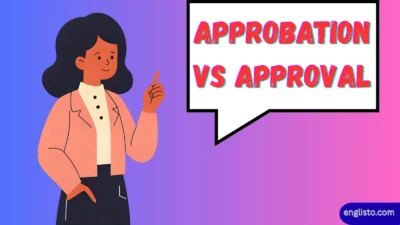Language is alive. It evolves, adapts, and often confuses us with subtle differences that carry historical, cultural, and stylistic significance. Few examples highlight this better than the words “favor” and “favour.” At first glance, they appear identical except for a single letter—yet behind that small “u” lies centuries of history, geographical divides, and ongoing debates among writers, editors, and English learners. Favor or Favour.
In this guide, we’ll explore the differences, similarities, meanings, and contexts of favor and favour. You’ll learn when to use each spelling, how they function in sentences, the grammar rules that apply, and why regional preferences exist. We’ll also dive into real-life examples, comparative tables, cultural insights, and even tips for remembering which form to choose depending on your audience.
The Core Difference Between Favor and Favour
At its heart, the difference comes down to regional spelling conventions:
| Variant | Spelling | Region | Example Sentence |
| American English | Favor | United States, Liberia, Philippines | “Could you do me a favor?” |
| British English | Favour | UK, Canada, Australia, New Zealand, India, Ireland, Jamaica, South Africa | “She granted me a great favour.” |
In meaning, there is no difference. Both words carry the same definitions, functions, and applications. The spelling simply changes depending on where you are, who you’re writing for, and the audience you want to connect with.
Read More: Strived or Strove: The Complete Guide to Choosing the Right Past Tense
Historical Roots of the Divide
The split between “favor” and “favour” can be traced back to the 18th and 19th centuries. During this period:
- British English preserved many words derived from Latin and French, retaining the -our ending (e.g., favour, colour, honour, behaviour).
- American English, influenced by lexicographer Noah Webster, streamlined words by dropping silent or unnecessary letters to make spelling simpler. Thus, colour → color, honour → honor, favour → favor.
Webster believed this reform would make English more logical and consistent for Americans. His 1806 Compendious Dictionary of the English Language formalized these changes, and they eventually became the standard in the US.
Meanings and Uses of Favor/Favour
Both favor and favour can act as a noun or a verb. Let’s break it down.
As a Noun
- A kind or helpful act: “Could you do me a favour and pass the salt?”
- Approval or support: “The policy won the favour of the voters.”
- An advantage or benefit: “His good behavior worked in his favour.”
As a Verb
- To prefer or give preference to: “The manager favours innovative ideas.”
- To treat with kindness or partiality: “She favoured her younger son.”
- To lean towards or act in support of something: “The council favoured the proposed budget plan.”
Common Synonyms
Here are words you can use interchangeably with “favor/favour” depending on context:
| Meaning | Synonyms |
| Act of kindness | Goodwill, gesture, assistance, help, service |
| Approval/support | Endorsement, backing, blessing, encouragement, patronage |
| Advantage/benefit | Edge, gain, upper hand, favorable condition |
| Preference | Liking, bias, leaning, inclination, partiality |
Examples in Sentences
- Everyday conversation:
- “Would you do me a favor and water the plants while I’m away?”
- “She asked for a small favour before the meeting.”
- “Would you do me a favor and water the plants while I’m away?”
- Business or politics:
- “The policy gained favour with environmental groups.”
- “The senator favors renewable energy initiatives.”
- “The policy gained favour with environmental groups.”
- Personal context:
- “He favoured his injured leg as he walked slowly.”
- “The teacher favours students who show creativity and effort.”
- “He favoured his injured leg as he walked slowly.”
Related Words That Follow the Same Pattern
If you understand “favor” vs. “favour,” you’ll notice the same pattern in other English spellings:
| British English | American English | Example |
| Colour | Color | “Her favourite colour is blue.” |
| Flavour | Flavor | “This tiramisu has a rich flavour.” |
| Labour | Labor | “The company cut back on labour costs.” |
| Rumour | Rumor | “There’s a rumour spreading in town.” |
| Behaviour | Behavior | “Good behaviour is always rewarded.” |
Regional Preferences in Detail
- United States → Favor dominates. American dictionaries, publications, and schools all teach this spelling.
- United Kingdom & Commonwealth Nations (Canada, Australia, New Zealand, India, Ireland, South Africa) → Favour is the standard form.
- Canada is interesting: while “favour” is standard, some Canadians use American spellings like favor or color, especially in digital writing.
- Philippines, Liberia, and other US-influenced regions → Favor tends to be more common.
When to Use Which Spelling
Choosing between favor and favour depends on three things:
- Audience → Are your readers American or British?
- Purpose → Academic writing, business communication, casual conversation?
- Consistency → Once you choose one variant, stick with it throughout your writing.
Pro Tip: If you’re writing for an international audience, it’s often best to use American spelling (favor), since it’s more widely recognized online.
Memory Tricks to Remember the Difference
- British English likes “U.” If you think of United Kingdom = U = favour.
- American English prefers “shorter forms.” Think USA = shorter spelling = favor.
- Another tip: Imagine “colourful favour” in a British tea party vs. “colorful favor” at an American birthday party.
The Subtle Nuances in Real-Life Usage
Although the meaning doesn’t change, cultural connotations can differ slightly:
- In British English, favour can sometimes feel a bit more formal or literary.
- In American English, favor is completely neutral and used across casual, professional, and academic settings.
Writers like Eoghan, Ryan, and Jonathon, when publishing in international journals, often prefer the British spelling (favour) because it aligns with global academic standards. Meanwhile, American authors like Karen or James stick to favor because it’s consistent with domestic readers.
Practical Grammar Applications
| Form | British Example | American Example |
| Noun (singular) | “He did me a favour.” | “He did me a favor.” |
| Noun (plural) | “Wedding favours were given to all guests.” | “Wedding favors were given to all guests.” |
| Verb (present tense) | “The teacher favours group work.” | “The teacher favors group work.” |
| Verb (past tense) | “She favoured the bold plan.” | “She favored the bold plan.” |
| Gerund | “He was favouring his leg.” | “He was favoring his leg.” |
Why This Matters in Writing and Communication
Using the correct spelling isn’t just about grammar—it shows respect for your readers’ expectations. For example:
- An academic paper submitted in the UK using “favor” may look careless.
- An email to an American manager using “favour” could appear unnecessarily formal or old-fashioned.
Getting these small distinctions right boosts credibility, clarity, and professionalism.
FAQs
Q1: Is “favor” wrong in the UK?
No—it’s understood, but it’s not the preferred spelling. “Favour” is correct in British English.
Q2: Can I use both “favor” and “favour” in the same text?
No. Stick to one form consistently depending on your audience.
Q3: Which spelling should I use in Canada?
“Favour” is the standard, but many Canadians also use “favor.” Consistency matters more than choice.
Q4: Do Americans understand “favour”?
Yes, absolutely. It may look slightly foreign but it’s not confusing.
Q5: Are there differences in pronunciation?
No—both are pronounced the same: /ˈfeɪ.vər/. The only difference is spelling.
Conclusion
The favor vs. favour debate is less about meaning and more about cultural and geographical identity in the English language. Both words carry the same essence: kindness, approval, preference, or support. The real difference lies in where you’re writing, who you’re writing for, and the standards of your chosen English variant.
To sum up:
- Use favor in American English.
- Use favour in British, Canadian, Australian, and other Commonwealth English.
- Always remain consistent, audience-aware, and context-driven.
Language is like a garden—different regions cultivate it differently, but in the end, it’s still the same plant. Whether you write favor or favour, what matters most is the meaning you convey and the connection you build with your readers.



